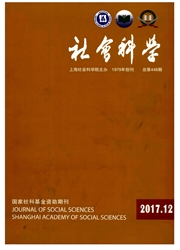

 中文摘要:
中文摘要:
教育关系着国计民生,不同社会群体对于教育价值的感知存有差异。基于2012年遍及10省“外出务工人员问卷调查”的数据资料,尝试分析农民工群体对教育价值的认知及影响因素。研究发现:在农民工看来,教育依然是改变其生存境遇的主要期待途径;但不同境遇和心态的农民工在认知方面存在差异,生活境遇低、命运观念重、求职困难、工作心态积极的农民工对教育的期望较高;不同年龄的农民工会有不同判断,年纪较轻的农民工更易于对教育价值产生质疑。农民工群体因为职业的转变而带来的生活、工作空间的变化,使得他们在教育价值判断上产生了一些新的认知特点。
 英文摘要:
英文摘要:
Education is of the core benefits of people's well-being, with different social groups harboring different perceptions on its value. Based on the data of a 2012 questionnaire on migrant workers from 10 provinces of Chi- na, the paper tries to analyze the influential factors forming migrant workers' group cognition of education value. The study found: migrant workers still view education as the main approach to change their fate. But there are some differences in the cognition of migrant workers from varied circumstances and of different state of mind. Poorer migrant workers with strong sense of fate, hard employment and positive attitude have higher expectation towards education. Judgment over education also differs among ages, with the younger ones more prone to ques- tioning the value of education. Generally, mobility in occupation leads to shifts in migrant workers' life and work, which produce some new features of cognition in their judgment over education value.
 同期刊论文项目
同期刊论文项目
 同项目期刊论文
同项目期刊论文
 期刊信息
期刊信息
